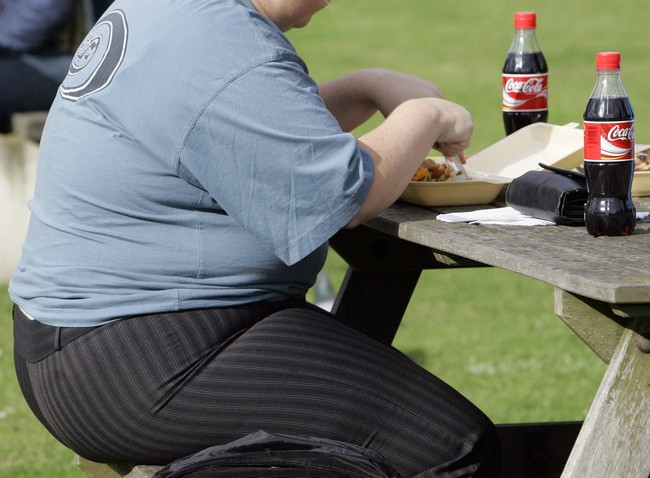We support our Publishers and Content Creators. You can view this story on their website by CLICKING HERE.

The New York Times ran a story on weight. Its health editor has a peach of a story, or maybe I should call it a Little Debbie, after the cake that launched a thousand extra belt notches.
Advertisement
It turns out that a percentage of people refuse to go to the doctor because the first thing doctors do is tell patients to step on the scale, although, in my experience, they leave that to assistants, the medical version of good-cop-bad-cop. Rather than scolding us, the story begins in praise of ignorance, if not outright folly. The story opens with a woman who chose a doctor in Phoenix precisely because the doctor does not do weigh-ins.
“When a person comes in, the first thing we do is not check their weight,” said Dr. [Natasha] Bhuyan, who is the vice president of in-office care and national medical director at One Medical, a primary care practice owned by Amazon.
Reporter Roni Caryn Rabin writes of the doctor, “Instead, she favors a ‘weight-inclusive’ approach recognizing that people come in different shapes and sizes and that the number on the scale does not necessarily predict health status.”
In fairness, the story presents doctors who think weight is at the core of our health crisis with a lot of statistics on that. And as a doctor in the comments points out, insurance won’t pay for a visit without weight information. And since doctors in the walk-in medical centers sprouting like mushrooms around the country get paid based on the number of patients they see, weigh-ins aren’t going to disappear.
But the fact that a startling number of people don’t want to know their weight or close their eyes to the scale during a doctor’s visit tells us the healthy government plan being proposed by Robert F. Kennedy as part of Trump 2.0 has a bigger problem than food additives.
Advertisement
Without a reality check and acceptance, nothing will matter since you can’t improve what you don’t measure. Losing even one pound every few months will yield a lot over time. In some cases, the decision not to offend has crossed the line to willful ignorance. San Francisco hired an obese woman to end fat shaming.
As a health-conscious friend said about that, “I am torn on this. On one hand, it annoys me when people think weight loss is just a matter of ‘putting the fork and spoon down’ or exercising really hard. Studies on ‘The Biggest Loser’ contestants show that they killed their BMRs (basal metabolic rates) due to the extreme caloric deficits they ran. On average, contestants experienced a decrease of approximately 700 calories per day in their BMR. This is a MASSIVE reduction (the typical diet is considered to be 2,000 calories per day). Is it any surprise one study revealed that of the 14 ‘Biggest Loser’ participants they tracked, only one individual maintained their weight loss six years after the competition, while four others gained more weight than they had initially lost?”
How can you lose weight without regaining it or being afraid to really accept that you are not perfect? If gluttony is one of the seven deadly sins, which includes overdoing anything, not just food, what is a good way to fight it? How can you keep it real? As St. Thomas More said in the time of Henry VIII, the poster boy for gluttony, “Men dig their graves with their teeth.”
Advertisement
First, resist overdoing it for a higher purpose, such as to please God. Offer it up as a mortification for a good intention. Do it so you can have a long life to help your loved ones and others.
Second, no meal should be without a small mortification. Less of what you like and a little more of what you don’t like will do it. A World War I chaplain called it the battle of the butter. Less butter today. Tomorrow no sugar in your coffee or tea, etc. Small steps with a higher purpose than just fitting into a bathing suit will build up your resistance over time. Expect to lose many battles, but it is worthwhile.
Related: Study Offers Fresh Explanatory Mechanism Behind Ketosis for Improved Brain Health
As for an approach to diet, some favor periods of intermittent fasting during the day (no snacks for x hours). YouTubers Bob and Brad like the 5-to-1 soluble fiber to carbohydrates that worked for them.
How you do it is up to you. Nothing is written in stone. Whatever you do, accept both reality and yourself. The virtuous life is an inclined plain, one very small step at a time.

 Conservative
Conservative  Search
Search Trending
Trending Current News
Current News 







